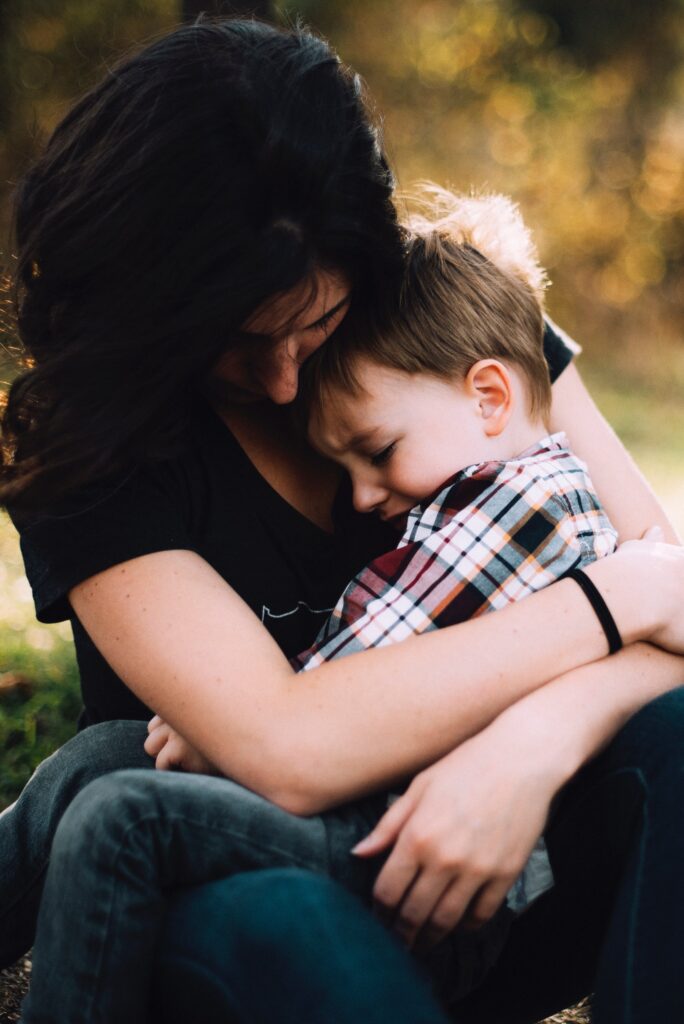Being a parent of a child with special needs throws all sorts of heartache, with many mothers and fathers asking , does my autistic child love me?
In this article, we aim to provide reassurance and shed light on the love that exists between parents and their autistic children.
Autism and love
Autistic children may experience emotions differently, and their expression of love may be nuanced.
While they may struggle with processing and articulating their feelings, it does not mean they do not experience love.
Love knows no bounds, and it exists in the hearts of all individuals, regardless of their neurotype.
As a parent, your emotional connection with your autistic child is precious.
You should recognise that your child’s love for you may be deeply rooted, even if it is not conveyed in the same way as you might expect.
Focus on fostering a secure and loving environment, where your child feels safe, understood, and appreciated.
Building a strong emotional bond with your child will create a foundation for love to grow and flourish.

Communicating emotions
One of the key aspects of autism is differences in communication styles.
While many neurotypical children may express their love through traditional declarations or physical affection, autistic kids may demonstrate their affection in alternative ways.
Nonverbal communication can be an essential channel for expressing love, and it often requires parents to attune themselves to different cues.
For example, your child may show love through gestures such as a gentle touch or a short period of eye contact.
It is a case for parents to be alive to these signals your child is likely giving you, they may be subtle but they’re present.
An autistic child may also demonstrate their love by seeking your company, or by relying on your presence for comfort and security.
You may well have noticed how distressed your child gets when mom leaves the room or home.
This is a clear sign of their love and dependence for you, even if it can be challenging in its own right.
Understanding and appreciating these unique modes of communication is essential in recognising your child’s love for you.
Unique demonstrations of love
As we know, each autistic child is unique, with their own strengths, challenges, and ways of expressing love.
Instead of comparing your child’s development and expressions of love to neurotypical standards, celebrate their individual progress and accomplishments.
Take note of the small victories and cherish the moments that demonstrate your child’s affection.
It may be a spontaneous hug, a shared laugh, or a heartfelt drawing dedicated to you.
Something like them coming and dropping their favourite toy at your feet could even be a display of love. They could be saying in their own way, “it’s your turn now because I love you”.
These subtle yet significant gestures are testaments to the love your child holds for you.

Show your love
It is also important for parents of autistic children to demonstrate their love both regularly and in a manner they can understand.
Showing love to your autistic child is an ongoing journey of understanding, empathy, and patience.
Remember that each child is unique, and finding the best ways to express love may require time and experimentation.
It could be that you have to use picture cards or sign language to display your love.
Or you may have to express your feeling through touch and non verbal communication.
With your unwavering commitment, you can cultivate a deep and meaningful connection with your autistic child.
This will ensure that you both feel cherished, supported, and profoundly loved.
Summary – Does my autistic child love me?
Dear parents, rest assured that your autistic child’s love for you is real, powerful, and unique.
Embrace the diversity of neurodiversity and cherish the different ways in which your child expresses affection.
By understanding and accepting these alternative modes of communication and emotional connection, you can foster a loving relationship.
The relationship can nurture your child’s well-being and brings you immeasurable joy.
Remember, love transcends words and embraces us all unconditionally, including autistic children.

